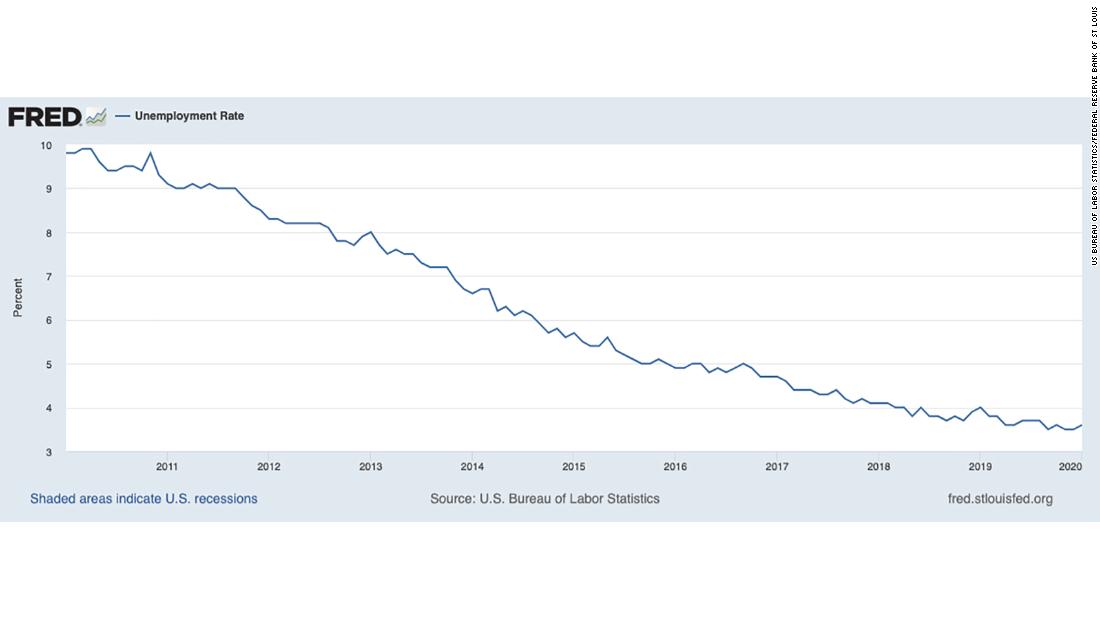While Mnuchin made clear this was just one of a number of possible scenarios and Congress seems poised to pass a massive stimulus bill as soon as today, it’s worth thinking about the political impact of a 20% unemployment rate.
Let’s dig into the history of extremely high unemployment rates — and what they meant politically.
The only time the unemployment rate has been over 20% in modern American history in a four-year period from 1932 to 1935 — right in the teeth of the Great Depression. During that time, the unemployment rate peaked at 24.9% in 1933.
The 1932 presidential election saw the public turn strongly against President Herbert Hoover, handing his challenger Franklin Roosevelt a sweeping victory. Down-ballot Democrats picked up nearly 100 House seats and retook control of the Senate based on voters blaming Hoover and Republicans for the Great Depression.
Democrats built on those gains at the congressional level in the 1934 midterm election — buoyed by Roosevelt’s New Deal policies. Two years later Roosevelt was reelected in a landslide as his party again picked up seats in the House and Senate. (By December of 1936, the unemployment rate had dropped to 16.9%.)
After years of single-digit unemployment rates, it wasn’t until 1982 when the unemployment rate again skyrocketed — back up to 10.8% in December of that year — amid a
recession that actually began in 1981. It was President Ronald Reagan’s first midterm election after winning the White House in 1980 and he entered it with high unpopularity numbers due to the state of the economy. Democrats picked up 27 seats in the House although they netted only a single Senate seat.
By 1984, however, the recession was over, unemployment dipped back to 7.3% in December and Reagan, like Roosevelt in 1936, won a crushing national victory — beating Minnesota Sen. Walter Mondale everywhere but in the senator’s home state.
Then came the
financial crisis of 2008. Unemployment that year was 7.3% in December, but the failures of major Wall Street banks that fall suggested massive volatility in the labor market. Barack Obama, running on a message of hope and change, easily defeated John McCain, who had fatefully said that
“the fundamentals of our economy are strong” in the midst of the collapse. Democrats also picked up eight Senate seats and almost two dozen House seats.
By 2009, the unemployment rate had soared to 9.9% and voter anger with the lack of progress made by Obama to turn things around led to a disastrous 2010 midterm election for the president’s party. Republicans scored a massive 63-seat gain in the House as the GOP took back the chamber.
By December 2012, however, with the unemployment rate back under 8%, Obama was reelected and Democrats picked up seats in the House and Senate.
What does all of that tell us about what a soaring unemployment rate — even if it falls well short of Mnuchin’s doomsday 20% prediction — could mean for the 2020 election? The short answer is BIG change, that would likely fall heavily on Republicans in the White House and Senate.
But — and this is very important — the challenge posed by the coronavirus is unlike any of these past economic downturns. While in the past blame could be laid at the feet of the occupant of the White House for instituting (or not instituting) policies that brought about such an unemployment mess, it’s far more difficult to blame an administration for a global pandemic.
Does that mean voters won’t? No. Voters — and people — aren’t terribly rational. If the unemployment rate is in the double digits come November, they may vote Trump out solely to effectuate a change, even if they don’t think he was terribly responsible for what happened.
The simple lesson from history is this: When we see unemployment rates anywhere near what Mnuchin floated on Tuesday, you can expect MAJOR shakeups in the political world to follow.
